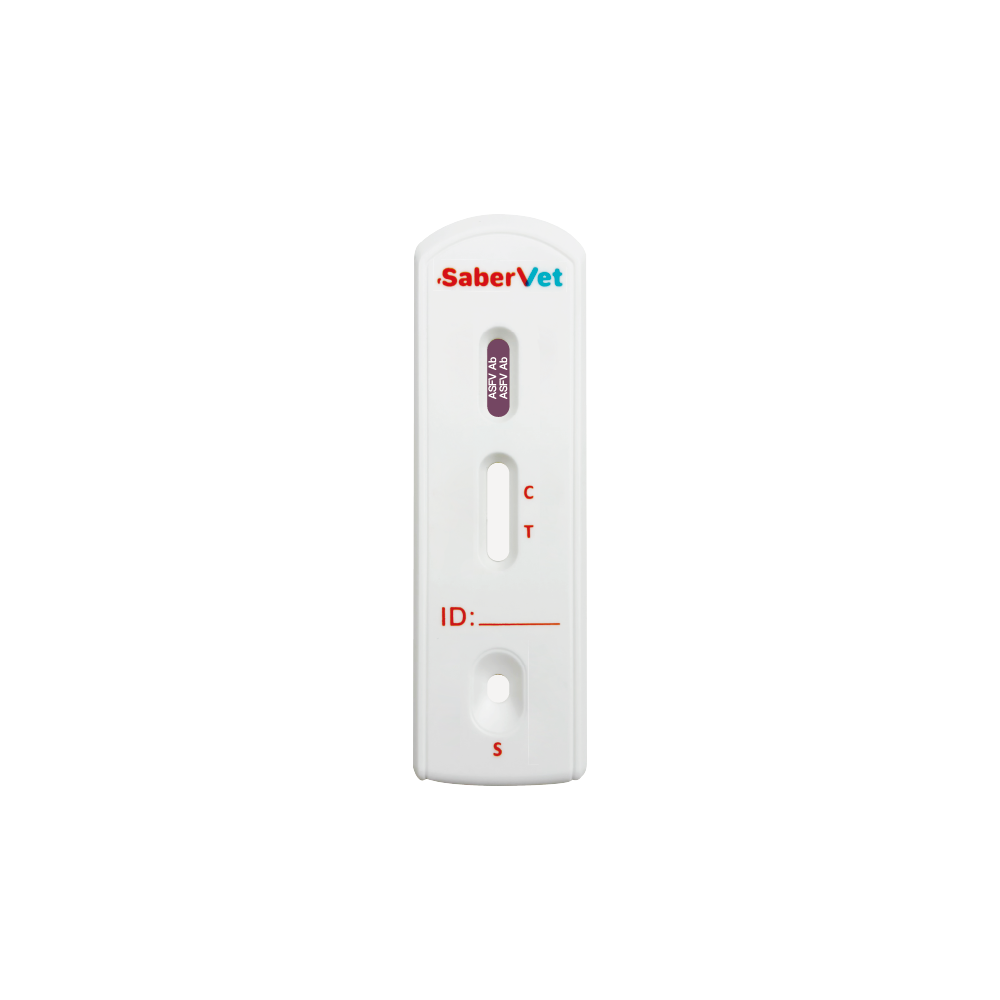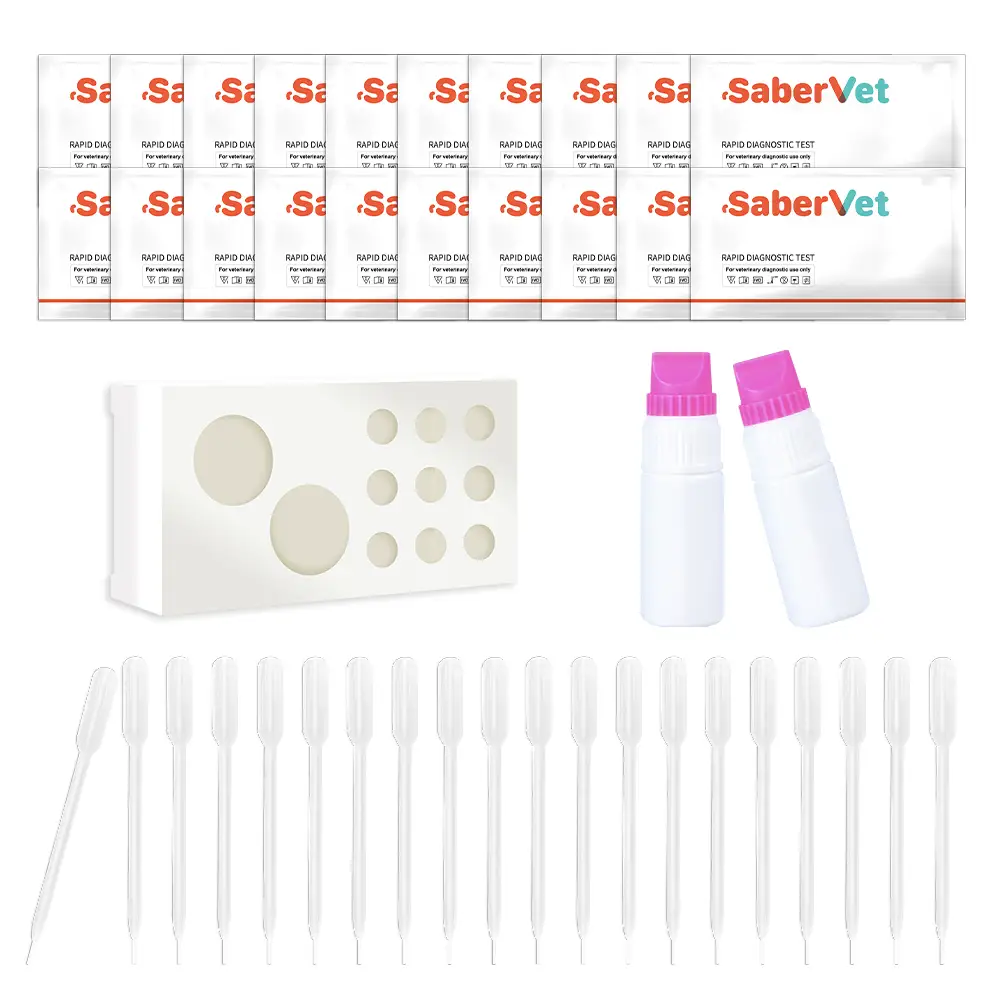African swine fever virus is a highly contagious and lethal virus that infects mainly domestic and wild pigs and poses a major threat to the global pig industry.
Klinische Symptome
Clinical signs of African swine fever vary depending on the acute, subacute and chronic forms of infection:
Acute form:
Hyperthermia: sudden rise in body temperature to 40-42°C.
Haemorrhagic signs: haemorrhagic spots appear on the skin, especially on the ears, abdomen and ends of the limbs.
Anorexia: marked loss of appetite.
Dyspnoea: accompanied by coughing and shortness of breath.
Vomiting and diarrhoea: bloody stools may occur.
Death: usually occurs within 7-10 days of infection and is up to 90-100% lethal.
Subacute type
Moderate fever: slightly elevated body temperature.
Decreased appetite: sometimes accompanied by mild respiratory symptoms.
Mild haemorrhagic symptoms: bleeding from skin and internal organs.
Mortality is low: usually 30-70%.
Chronic type
Intermittent fever.
Growth retardation and wasting.
Skin ulceration and necrosis.
Arthritis: lameness may occur.
Mortality is low: but growth and productivity are markedly affected.
Wege der Übertragung
Direct contact
Pig-to-pig transmission: by direct contact with body fluids (blood, saliva, urine, faeces, etc.) of infected pigs.
Feral pigs: feral pigs act as virus hosts and can be transmitted to domestic pigs through contact.
Indirect transmission
Contaminated feed and water sources: excreta from infected pigs contaminate feed and water sources.
Vehicles and equipment: transport and feeding equipment can act as a virus vector if not adequately sterilised.
Personnel: breeders, veterinarians and other personnel transmit the virus through clothing and tools.
Transmission by soft ticks
Soft ticks: soft ticks (e.g. Ornithodoros spp.) in some areas can be carriers and vectors of the virus, transmitted to pigs through bites.
Pig products:
Contaminated pork and its products: inadequately processed pork and its products can also transmit the virus.
Klinische Diagnose
Klinische Symptombeobachtung:
Initial diagnosis based on typical high fever, haemorrhagic symptoms and high mortality.
Laboruntersuchungen:
Virus isolation and identification: isolation of virus from blood, viscera and body fluids.
PCR test: detection of viral DNA by polymerase chain reaction (PCR), which is currently the most commonly used rapid diagnostic method.
Serological tests: Detection of antibodies, such as enzyme-linked immunosorbent assay (ELISA), are used to determine the status of infection and to monitor the immune response.
Immunofluorescence assay: detects viral antigens in tissue samples.
Präventive und kurative Maßnahmen
Prävention
Strict biosecurity measures: including isolation of newly introduced pigs, disinfection of personnel and equipment, restriction of access to pig farms by personnel and vehicles, etc.
Surveillance and quarantine: regular monitoring of herd health, rapid detection and reporting of suspected cases.
Avoid contact with wild pigs: Take measures to prevent contact between domestic pigs and wild pigs.
Control of soft ticks: take measures to control soft ticks in areas where they are present.
Vaccine
There is no effective commercial vaccine available. Researchers are developing and testing several vaccine candidates.
Treatment and control measures
Culling and destruction: cull infected herds and safely dispose of and destroy carcasses.
Disinfection and cleaning: Thorough cleaning and disinfection of contaminated pig housing, equipment and the environment.
Lockdown and isolation: lockdown and isolation of the infected area to prevent the spread of the virus.
Education and training
Train breeders and veterinarians: raise awareness of African swine fever and prevention and control skills.
Publicise knowledge of epidemic prevention: Improve the awareness of epidemic prevention and self-protection ability of pig farms through publicity and education.
Afrikanische Schweinepest Virus Antikörper Schnelltest
Antigenne has developed an African Swine Fever Virus Antibody Rapid Test, which is a fast, easy-to-use and highly accurate test that can effectively help users monitor African swine fever virus infection.













